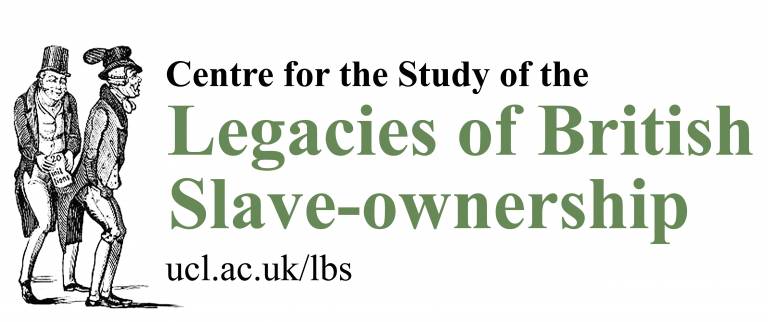The structure and significance of British Caribbean slave-ownership 1763-1833
21 November 2018, 5:30 pm–7:00 pm

Mapping the ownership of estates and of the enslaved people attached to them from the expansion of the British slave-empire in 1763 to Emancipation in the 1830s
This event is free.
Event Information
Open to
- All
Availability
- Yes
Cost
- Free
Organiser
-
Dr Kate Quinn – UCL Institute of the Americas020 7679 2000
Location
-
Lecture Room 103UCL Institute of the Americas51 Gordon SquareLondonWC1H 0PNUnited Kingdom
This paper presents some of the new work underway in the Legacies of British Slave-ownership project, discussing preliminary findings from the mapping of ownership of estates and of the enslaved people attached to them for the period between the expansion of the British slave-empire in 1763 and Emancipation in the 1830s, and setting out some potential applications of the new material for historians of both Britain and the Caribbean in this period.
While attendance at this event is free, places are limited and booking is required to avoid disappointment.
About the Speaker
Dr Nick Draper
Director at UCL Centre for the Study of the Legacies of British Slave-ownership
Dr Nick Draper is the Director of the new UCL Centre for the Study of the Legacies of British Slave-ownership. Between 2013 and 2015, he was co-director of the Structure and significance of British Caribbean slave-ownership 1763-1833 project at UCL, and was a founder-member of its precursor, the Legacies of British Slave-ownership project, which ran at UCL from 2009-2012. His book Legacies of British Slave-ownership: Colonial Slavery and the Formation of Victorian Britain (with C. Hall, K. McClelland, K. Donington and R. Lang) was published last year by Cambridge University Press. His The Price of Emancipation: slave-ownership, compensation and British society at the end of slavery (CUP, 2010) was awarded the Royal Historical Society’s Whitfield Prize and shortlisted for the Frederick Douglass prize. He is a member of the Finance Committee, and a Fellow, of the Royal Historical Society. Prior to his current research, he worked in the City of London for 25 years.
 Close
Close

